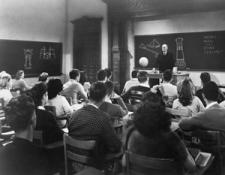Learning to reframe feedback

Early in my professional career, I was on the fast track. I had been promoted a couple of times and really thought a lot about my abilities. Next up was that coveted director position, which I thought I had in the bag. No one was more talented and had the “right stuff.” I had always received top-notch results and was just waiting for the call.
Well, the call came for one of my colleagues instead, and I was devastated and mad. I stormed into the senior director’s office, who was a good friend of mine, and said, “How could you do this to me”?
The feedback I received changed my career in such a positive way, even though I had to do a lot of soul-searching of how I approached work.
My friend and supervisor said that I had all the skills to do the job and my results were unquestioned. But the one thing I had to work on to go further in my career was not being self-centered and individualized on my results above our team’s success.
He said, while being very successful, my individualized approach alienated others and made them feel there was a disconnect between my “me” model and the “us” model that this new director would be leading into the future.
Initially, I did not understand. Wasn’t work all about achieving results at almost any cost? My friend said “yes” - results are an important part of how you are judged. But, he said, just as critical was to inspire, develop great working relationships and learn to lead by example.
While I was very good at results, the other three components needed some work…actually a lot of work. My friend thought I could be very successful at them but I had to change my mindset.
I went home that night very down. All the things I thought were so important had not gotten me the position I wanted. Now, I had to grow in ways I didn’t expect.
My mother and dad, who already had a huge influence in helping me overcome a lifelong disability, stepped up and provided me the additional feedback I needed.
Both said to not worry so much about myself and always treat my colleagues as I wanted to be treated at work. If you do this, my results would be there
Those simple words made me re-think a lot. While it took me awhile to fully engage, the message was that work was not a race but a journey. You need to bring and help colleagues along on the ride. Put aside some individuals goals to develop relationships and, to use an Olympic phrase these days, “move the puck forward into scoring position.”
I didn’t realize it at the time but I used think2perform’s experiential triangle and freeze game to become the person I am today.
I needed to rework my thoughts, feelings and emotions to allow “us” to be in the equation. I also needed to consistently ask such questions like:
- What are you thinking?
- How are you feeling?
- What are you doing?
There was nothing easy about it and it took time. But my investment in looking out for others as I did myself has enriched my life. It also can be a benefit for you if you really listen to feedback people are providing you.
Being an effective leader can be challenging, and it takes much more than just living on individual results as I found out. It takes the mindset of dusting yourself off to learn additional ways to thrive in our world.
Leadership effectiveness is also what we observe in organizations as the biggest differentiator in the overall performance of firms. If you’re interested in thriving even more, contact us at Think2Perform. We helped thousands of leaders, executives, coaches and individuals tap into more of their leadership and life potential.

Add new comment